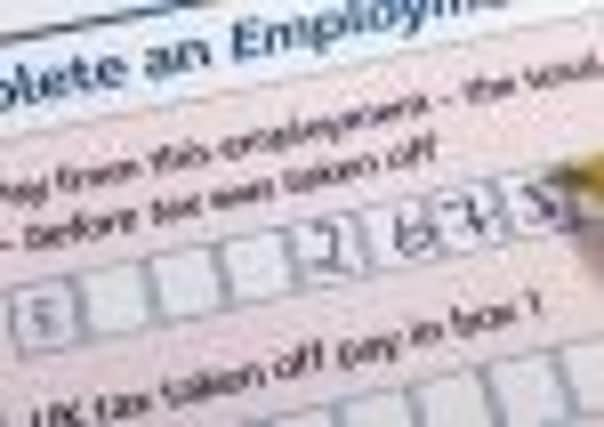Jeff Salway: Poor have become easy targets for taxman


While multinationals choose how much tax they want to pay in the UK – and the blame for that lies entirely at the door of HM Revenue & Customs – people who don’t actually owe any tax are hit with fines if they file their returns a few days late, whether or not it’s their fault.
Now there’s fresh evidence of people on low incomes and without internet access being treated unfairly by HMRC in its haste to cut costs by doing everything online, according to a new National Audit Office (NAO) report.
Advertisement
Hide AdAdvertisement
Hide AdFailure to recognise that many people can’t access online services is one shared across organisations of all kinds as they pursue cost savings without thought for the needs of their customers. The difference with HMRC is that people who are unable to engage with it end up paying too much tax or facing penalties.
The NAO also revealed that Britons lost £136 million waiting for HMRC to answer their calls last year. That includes £33m on call charges, a cost that hits those on low incomes (especially with pay-as-you-go mobile phones) and the digitally excluded particularly hard.
MPs didn’t hold back in their condemnation of HMRC, but they’re culpable too. The Chancellor made a great play of giving HMRC an extra £154m in the recent Autumn Statement, claiming he was funding a tax avoidance “blitz”. He’s doing nothing of the sort, because the 10,000 HMRC job cuts he announced in 2010 will send tax inspector numbers to a record low.
The job cuts are part of efforts to strip £2 billion from HMRC funding, but the impact on its work means it’s already collected around £1.1bn less in tax as a result.
With fewer staff and under strict orders to collect more in taxes, it’s no wonder HMRC is going for the little guy who can’t afford to fight back.
Dangerous deals
AFTER the backlash that hit Newcastle United FC when it unveiled its tie-up with Wonga, you’d have bet against reputable retailers getting into bed with the high-profile payday lender.
But furniture company Cotswold has given Wonga – also sponsor of Hearts Football Club – a new opportunity to mess up more people’s finances. That’s not difficult to do, however, and until more is done to improve financial literacy the likes of payday lenders have a free run.
The Cotswold deal will allow online shoppers to pay for purchases of £100 to £1,000 with a three-month loan.
Advertisement
Hide AdAdvertisement
Hide AdThe PayLater service is marketed as a “credible and innovative alternative to credit cards”, with the usual marketing guff about how helpful it is for consumers.
It is if they want to get even deeper into debt. The APR (annual percentage rate) is 27.7 per cent, so while it’s a distinct improvement on the 4,214 per cent APR on Wonga’s payday loans, it doesn’t stack up so well against credit cards (which have an average rate of around 18 per cent).
Cotswold claims that the service is transparent, yet it’s not clear what happens if the loan isn’t repaid on time.
Whether you like it or not, though, this is a logical next step for Wonga, which is genuinely innovative and something of a pioneer in terms of its online proposition. For all the very dubious morality behind its payday loans, the firm has a customer satisfaction rating that most companies would kill for, especially in financial services.
We’ll see more innovation like this from Wonga and its kind. They’re on fertile ground, thanks to a combination of rising living costs, the government’s ill-conceived assault on welfare support and poor standards of financial literacy. If there’s a way to exploit those conditions, payday lenders will find it.